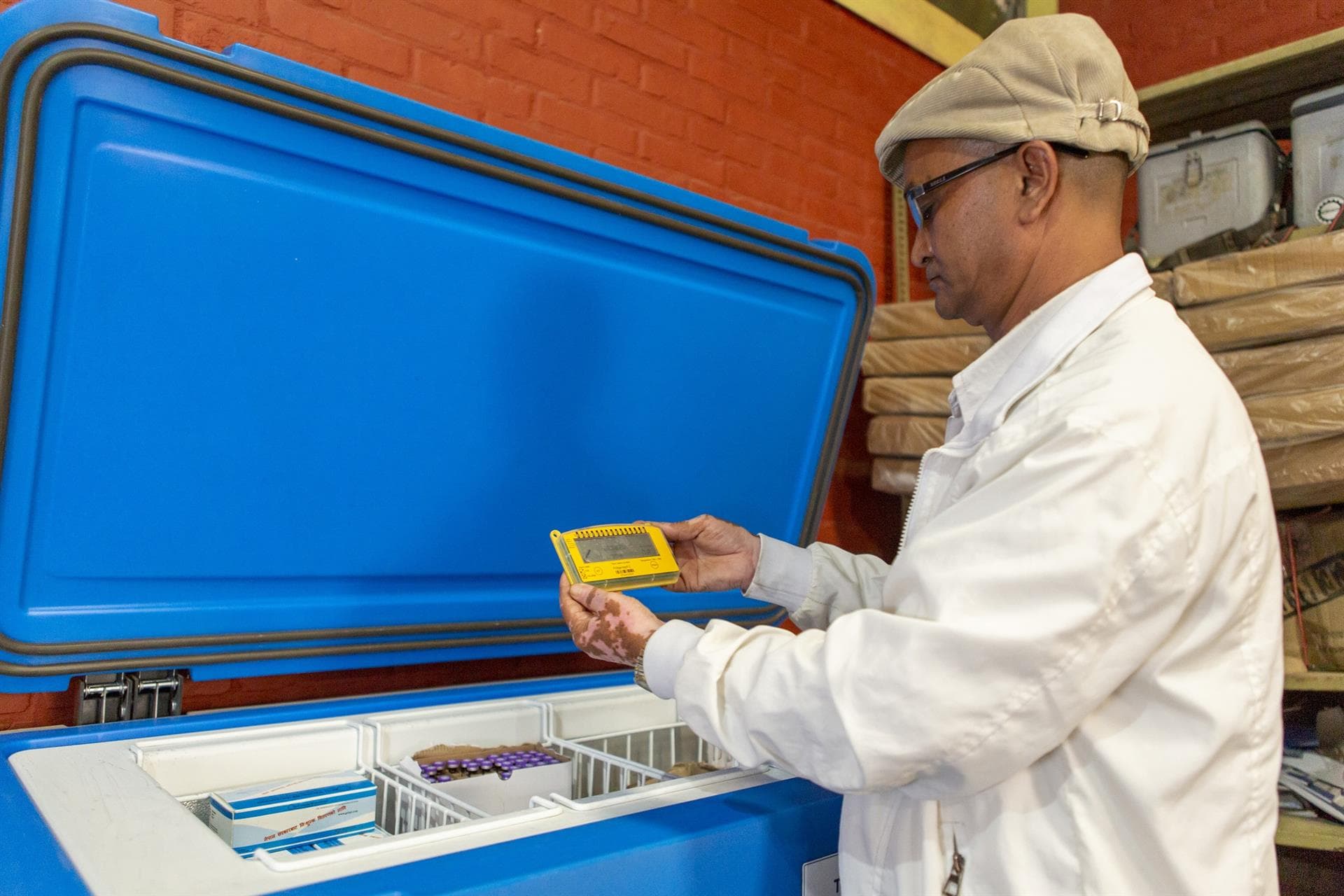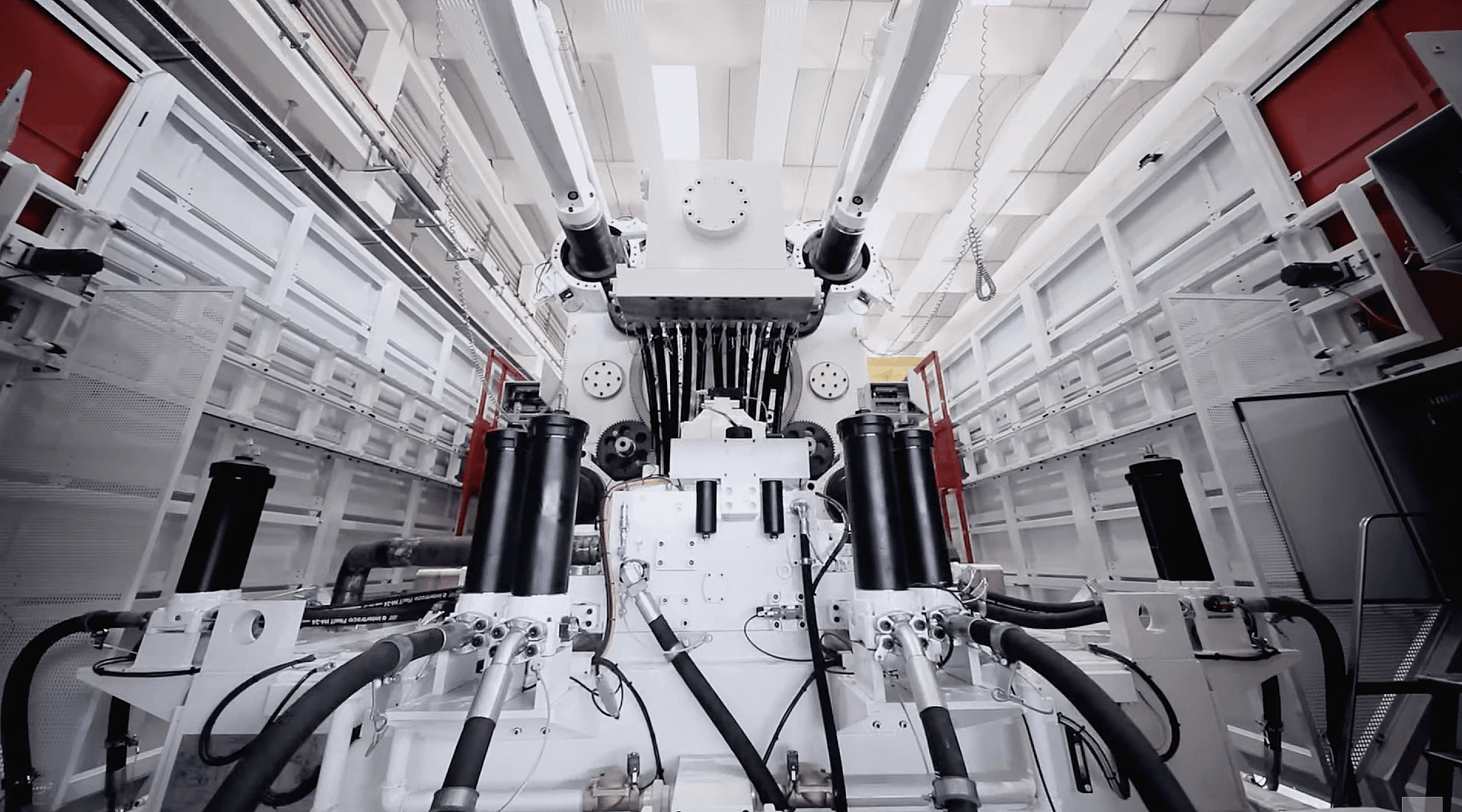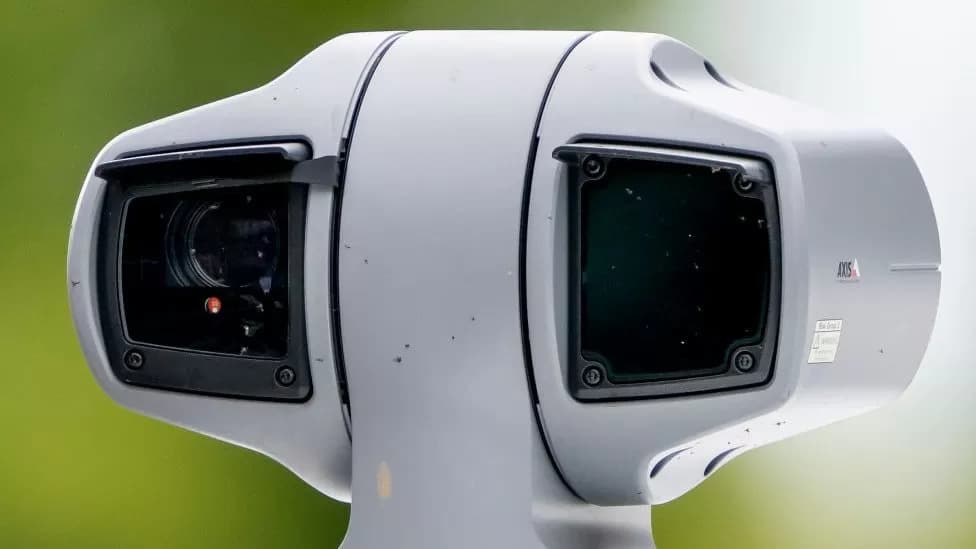
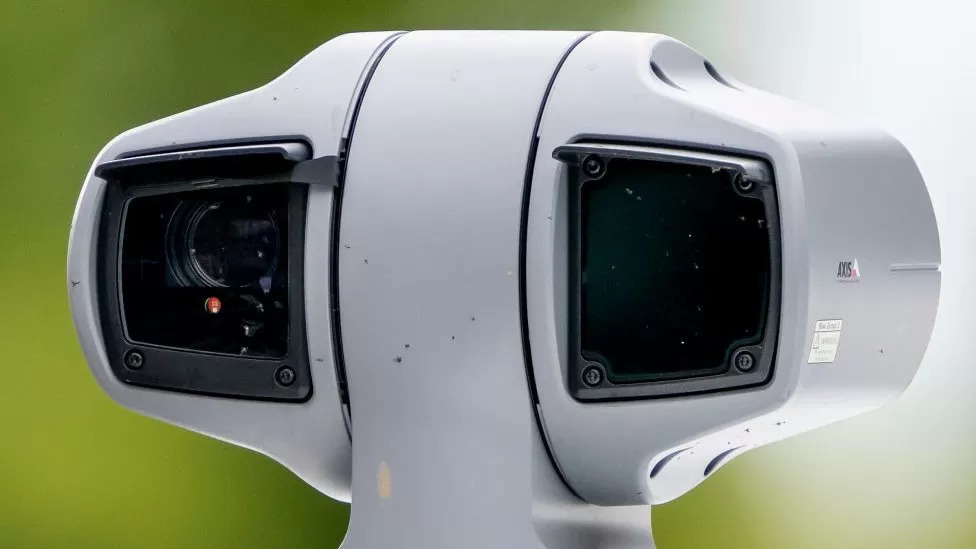
Police and private companies should "immediately stop" the use of facial recognition surveillance, says a group of politicians and privacy campaigners.
They have raised concerns around human rights, potential for discrimination and "the lack of a democratic mandate". It comes after the government announced plans for police to access passport photos to help catch criminals. The Home Office said facial recognition had "a sound legal basis" and had already led to criminals being caught. A spokesperson added that the technology could also aid police in searching for missing or vulnerable people, and free up officers to "be out on the beat" and to carry out complex investigations. Live facial recognition cameras scan faces of the public in specific locations and compare these with people on "watch lists" who may be wanted by police or the courts in association with crimes. Police forces using the technology in the UK inform citizens in advance about when and where it will be deployed, and display physical notices alerting those entering areas where it is active to the presence of cameras. But this week, policing minister Chris Philp said he wanted officers to be able to access a wider range of databases for images besides those on its national database, which is limited to those who have been arrested. Campaigners have called for it to be banned "immediately". "This dangerously authoritarian technology has the potential to turn populations into walking ID cards in a constant police line up," says Silkie Carlo, the director of privacy organisation Big Brother Watch. The group calling for the ban includes parliamentarians from the Conservatives, Labour, Liberal Democrat and Green parties, along with campaigning organisations such as Amnesty, Index on Censorship and Big Brother Watch.
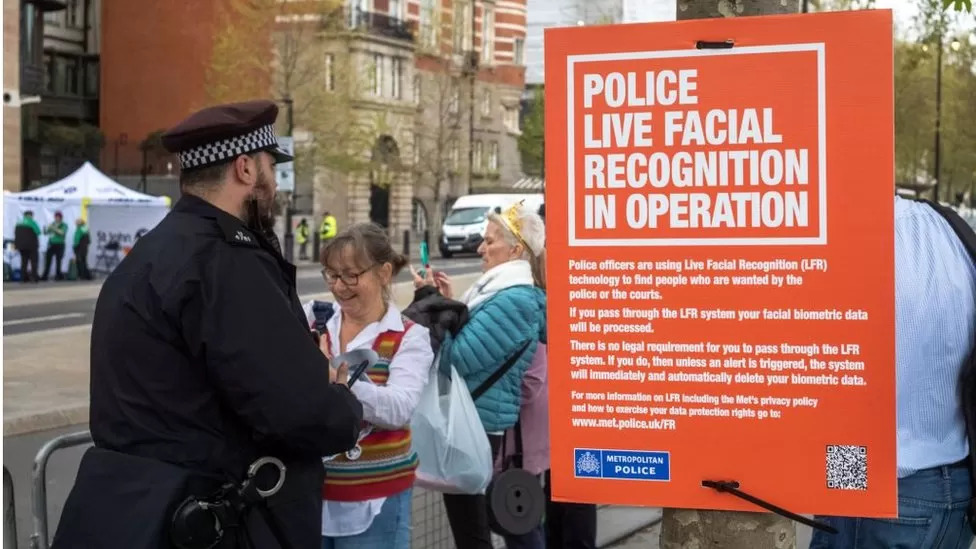
Ms Carlo, of Big Brother Watch, argued the UK's "approach to face surveillance makes us a total outlier in the democratic world, especially against the backdrop of the EU's proposed ban". Members of the European Parliament agreed to ban live facial recognition using AI in a draft of its Artificial Intelligence (AI) Act - the EU's landmark legislation categorising different applications of AI according to their harm to the public. The Home Office said the government was "committed to making sure the police have the tools and technology they need to solve and prevent crimes, bring offenders to justice, and keep people safe". "Facial recognition, including live facial recognition, has a sound legal basis that has been confirmed by the courts and has already enabled a large number of serious criminals to be caught, including for murder and sexual offences," a spokesperson said. They added there was a "robust legal framework for it use".
They have raised concerns around human rights, potential for discrimination and "the lack of a democratic mandate". It comes after the government announced plans for police to access passport photos to help catch criminals. The Home Office said facial recognition had "a sound legal basis" and had already led to criminals being caught. A spokesperson added that the technology could also aid police in searching for missing or vulnerable people, and free up officers to "be out on the beat" and to carry out complex investigations. Live facial recognition cameras scan faces of the public in specific locations and compare these with people on "watch lists" who may be wanted by police or the courts in association with crimes. Police forces using the technology in the UK inform citizens in advance about when and where it will be deployed, and display physical notices alerting those entering areas where it is active to the presence of cameras. But this week, policing minister Chris Philp said he wanted officers to be able to access a wider range of databases for images besides those on its national database, which is limited to those who have been arrested. Campaigners have called for it to be banned "immediately". "This dangerously authoritarian technology has the potential to turn populations into walking ID cards in a constant police line up," says Silkie Carlo, the director of privacy organisation Big Brother Watch. The group calling for the ban includes parliamentarians from the Conservatives, Labour, Liberal Democrat and Green parties, along with campaigning organisations such as Amnesty, Index on Censorship and Big Brother Watch.





